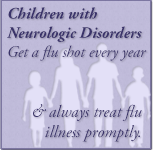Risk Factors and Causes

Scientists are studying the causes of and risk factors for Tourette Syndrome (TS) in an effort to understand it better, and to find better ways to manage TS and to reduce the chances of a person having TS. The causes of TS and other tic disorders are not well understood.
Although the risk factors for and causes of TS are unknown, current research shows that genes play an important role:1,2
- Genetic studies have indicated that TS is inherited as a dominant gene, with about a 50% chance of parents passing the gene on to their children.
- Boys with the gene(s) are three to four times more likely than girls to display symptoms of TS.
- TS can be triggered by abnormal metabolism (breakdown) of a chemical in the brain called dopamine.
Some research has shown that TS is a genetically complex disorder that likely occurs as a result of the effects of multiple genes interacting with other factors in the environment. Scientists are studying other possible causes and environmental risk factors that might contribute to TS. Some studies have shown that the following factors might be associated with TS, but additional research is needed to better understand these associations:2, 3
- Mother drinking alcohol or smoking during pregnancy.
- Complications during birth.
- Low birthweight.
- Infection. Researchers are investigating whether certain children are more likely to develop tics following a group A ß-hemolytic streptococcal (“strep”) infection. This is referred to as Pediatric Autoimmune Neuropsychiatric Disorders Associated with Streptococcal (PANDAS) infections.2
For More Information
Tourette Syndrome Plus: Causes of TS
References
- O’Rourke, JA, Scharf, JM, Yu, D, Pauls, DL. The genetics of Tourette Syndrome: a review. J Psychosom Res. 2009; 67(6): 533-45.
- Harris, K and Singer, HS. Tic disorders: neural circuits, neurochemistry, and neuroimmunology. J Child Neurol. 2006; 21(8): 678-89.
- Zinner, S. Tourette Syndrome in infancy and early childhood. Infants and Young Children. 2006; 19(4): 353-70.
- Page last reviewed: May 11, 2017
- Page last updated: May 11, 2017
- Content source:



 ShareCompartir
ShareCompartir